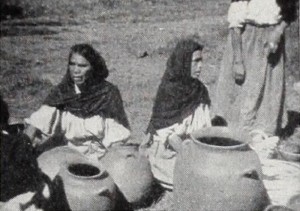
"Ella Paul did not try to cover the whole of Mexico, as do so many who visit that fascinating country. In fact she chose to limit her study to one small locale — the town of Patzcuaro and the activities on its lake. This primitive yet industrious community is recorded in pleasing compositions and with sympathetic appreciation of its sunny warmth and charm. The familiar butterfly nets, dugout canoes and the heroic statue of Morelos are all there in Beneath Mexican Skies; but Mrs. Paul's camera gives them a fresh treatment." Movie Makers, Dec. 1950, 466.
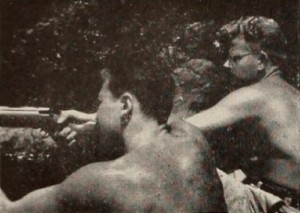
"It takes a true craftsman to catch all the intimate and informal scenes that make a first rate vacation film, particularly when his exposure problems are complicated by the sunlight and shadows of a thickly wooded lake shore. But George Mesaros has succeeded in producing the sort of vacation record that most filmers only dream about. Mr. Mesaros has mastered his technical problems with an expert's hand and has turned out a stunning, vital movie of a summer outing in the Saranac Lake region. Faced with non-cooperative fellow campers, he had to be prepared to set up his tripod at a moment's notice; but the candid air of the proceedings on the screen is ample recompense for his vigilance. Bluff Island Idyll is a vivid testament to the importance of human interest and to the appeal of simple, everyday activities when they are properly sequenced and edited." Movie Makers, Dec. 1947, 513.
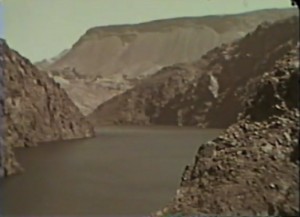
Educational short film presenting Boulder Dam (now known as Hoover Dam) as an example of a "wealth of the land in the form of energy."
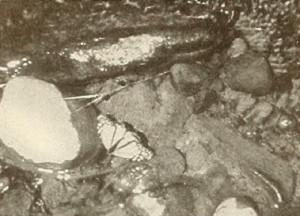
"The very great faculty of Robert P. Kehoe for seeing natural beauty and giving it an individual and entirely original expression in film enables him, in Brookside, to reach a new height in cinematography, because he has added to that faculty an attention to the business of continuity. Like Tennyson's Brook, Mr. Kehoe"s film starts to go somewhere, keeps going and gets there, while we who watch the going see, by the brookside, some of the loveliest — but tripodless — footage of water, flowers and woodland that any landscapist could want to come by. The final sequence of Mr. Kehoe's picture has a tragic tenderness that is almost too poignant, since he has filmed the funeral progress down the darting brook of a lustrous butterfly that ventured too close to the water and was sucked into it. With wings outspread, the little body goes past us into '"yesterday's ten thousand years" as the film ends." Movie Makers, Dec. 1941, 565.
A Camper and His Canoe was filmed at Camp Kawagama, the youth summer camp run by the filmmaker and his wife.
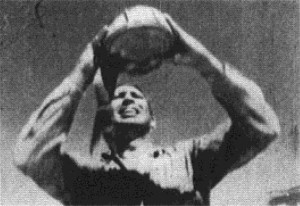
"A story of two bad guys on the loose and three others on their trail in the dry desert. We move over the desert floor and into the hills for some gun play. The need for water is so pressing that the fight centers about a canteen of water which becomes the center of no-mans-land. The bad gys meet their fate and the canteen is empty from bullet holes. The actors do a credible job in a chapter from a "Western" PSA Journal, Nov. 1960, 40-41.
"Cay Sal is a film of underwater life and treasure, containing some excellent underwater photography - steady, consistent, with adequate illumination for exposure and excellent subject matter" PSA Journal, Sept. 1964, 50.
"Miscellaneous scenes of the sea. Includes brief shots of some boats moored in a foreign harbour and various travelling shots of the sea, taken from on board ship. Concludes with family footage of a young girl walking along a garden path, holding hands with two women and a brief shot of a couple of children playing on a swing" (NWFA Online Database).
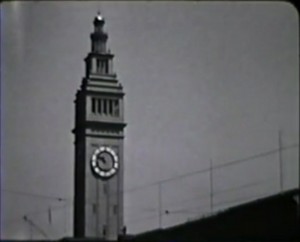
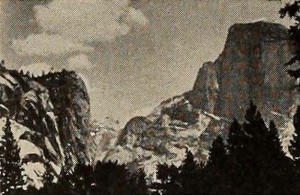
"Dr. Numa P. Dunne has accomplished in Colorful Yosemite what hundreds of other amateur movie makers have failed to accomplish — the production of a simple, well planned and charming scenic of Yosemite National Park. Here was a subject selected by scores of itinerant cameramen before him, yet "muffed" almost invariably through lack of care. Dr. Dunne found no scenic advantages in the great park not offered to others, but he obviously brought to the setting something more than the usual confused and slightly awestruck interest. Tripod steady camera work, well rounded sequences, pleasing compositions and imaginative title wordings all contribute to make up a satisfying whole." Movie Makers, 1938, 618.
Total Pages: 11